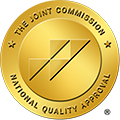Alcohol use disorder runs rampant in the U.S., with an estimated 16% of adults engaging in excessive drinking in Georgia, making it the 12th highest average in the country. Excessive alcohol use, like abuse of other addictive substances, can lead to physical dependence that makes it difficult and dangerous to stop. Keep reading to learn more about alcohol withdrawal symptoms, the timeline of alcohol detox, and how you or your loved one can comfortably and safely find relief from alcohol abuse.
How Long Does Alcohol Withdrawal Last?
Acute alcohol withdrawal symptoms typically last for 72 hours; however, this varies on a person-to-person basis. Alcohol withdrawal begins when someone quits drinking after a long period of heavy alcohol use. Since alcohol slows brain function and nerve communication, the brain remains in a stimulated state throughout this prolonged abuse. After cessation, the brain continues to anticipate alcohol consumption. This leads to alcohol withdrawal symptoms.
Some symptoms may be mild; however, others can become life-threatening if left untreated. This is a cause for concern among those wanting to find sobriety. Fortunately, detox programs have made it possible to stop drinking comfortably and safely.
Quitting Drinking: Timeline
Alcohol withdrawal differs for each patient; no two people experience substance use disorder in the same way. However, experts agree that alcohol withdrawal can generally be broken down into three stages, with each presenting changes in symptoms and progression toward sobriety. The three stages of alcohol withdrawal that lead to quitting drinking include:
Stage 1: The First 8-10 Hours
The first stage of alcohol withdrawal is usually when most symptoms arise. They are also the most severe at this point. Expected signs of stage one include:
- Anxiety
- Mood swings
- Nausea and vomiting
- Heart palpitations
- Trouble sleeping
- Tingling in extremities
- Brain fog
- Tremors
- Hallucinations
- Tunnel vision
These symptoms can appear as early as six hours after your last drink and will persist through your first day of detoxing.
Stage 2: The Next 2-3 Days
After the first 24 hours have passed, symptoms will continue for the next two to three days. Additional issues characteristic of stage two include:
- Sweating
- Seizures
- Confusion
- Dehydration
- Panic attacks
- Aches
- Nightmares
- Alcohol cravings
- Delirium tremens (DTs)
- Heartburn
- Fever
- Headache
For some, the second stage will prove more uncomfortable than the first. However, detox programs offer medical and therapeutic interventions that will make these symptoms less severe, providing comfort and safety throughout this process.
Stage 3: After the Third Day
For most, stage three will offer relief from most physical symptoms. This stage can, however, present life-threatening concerns in some cases, including delirium tremens. As the days progress, the discomfort will continue to fade. However, some psychological issues may take longer to subside. During this time, it is not uncommon to experience:
- Strong urges and cravings
- Anxiety and depression
- Fatigue
- Irritability
Although these symptoms can make it challenging to continue on your journey to sobriety, detox programs offer the guidance you need to navigate the process. Acworth Outpatient Detox provides counseling services that help you overcome these obstacles as you continue toward sobriety.
Overcome Alcohol Withdrawal Symptoms
Quitting drinking may seem daunting, but it doesn’t have to be. Outpatient detox programs allow you to navigate the journey toward sobriety without interrupting your daily responsibilities, like work or tending to your children. Acworth Outpatient Detox offers expert care to alleviate withdrawal symptoms, promote client comfort, keep you safe, and relieve cravings. Contact us today to book your first appointment and create an alcohol detox program that fits your needs.






